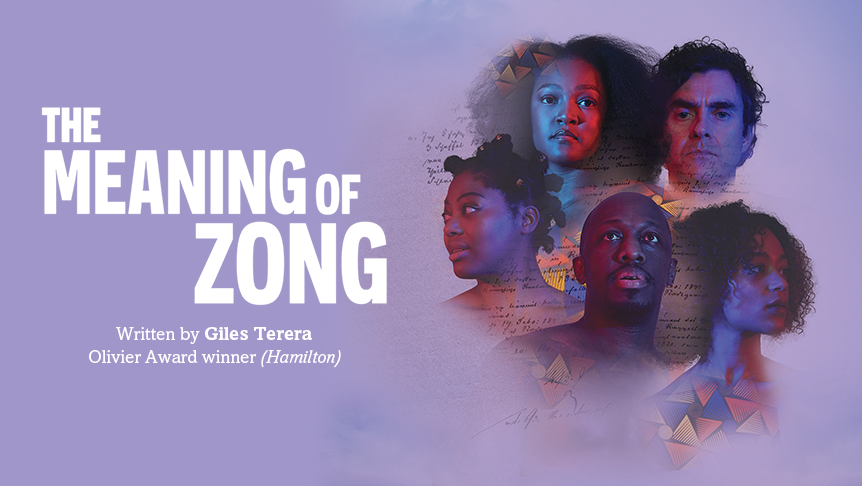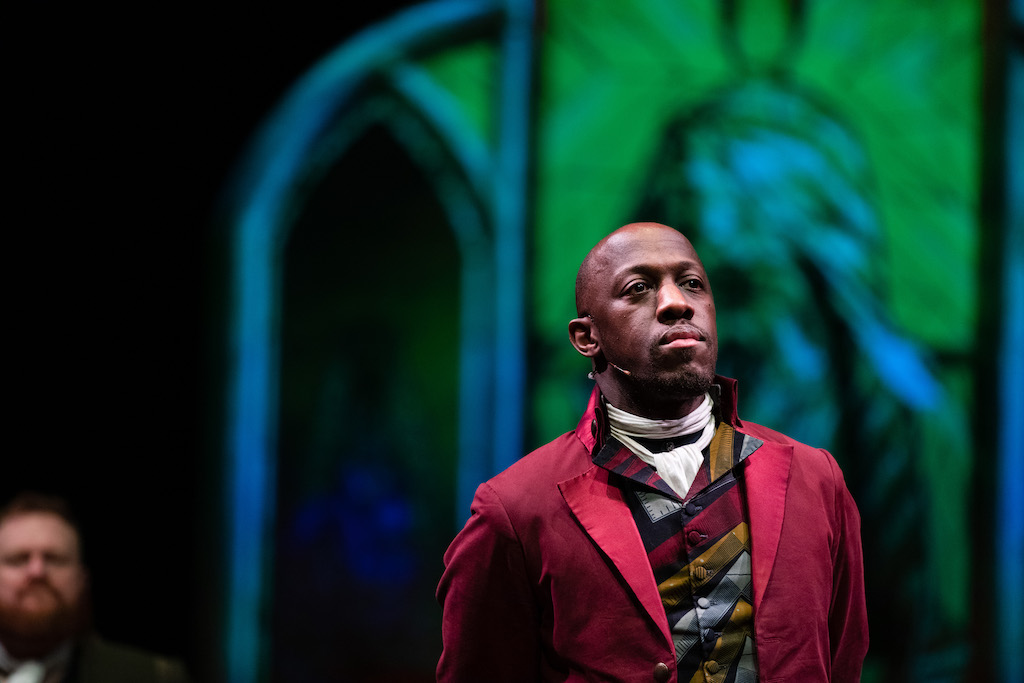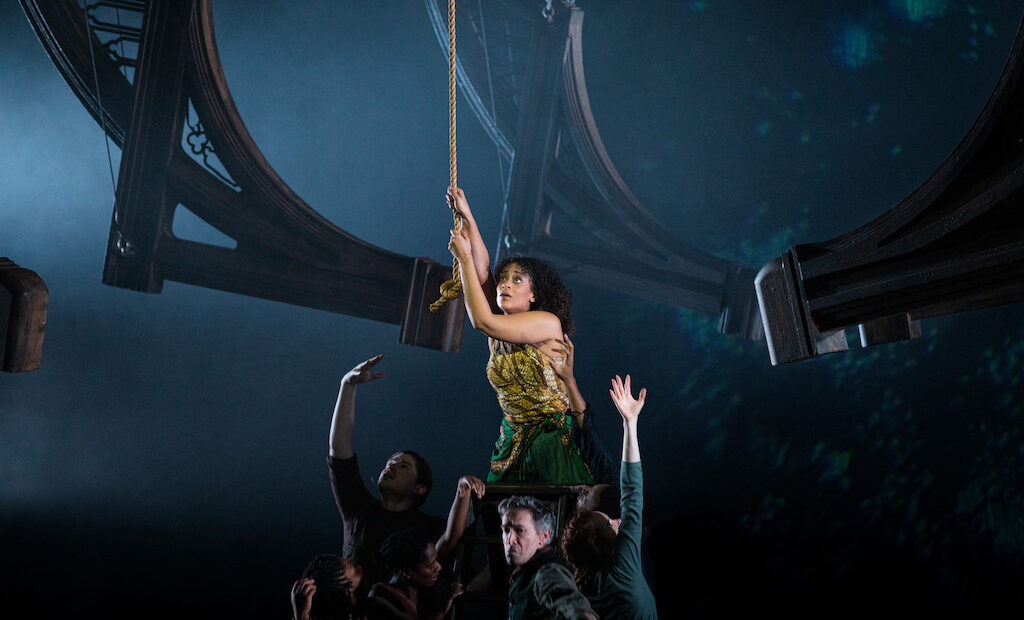
The Meaning of Zong is written, co-directed with Tom Morris, and stars Critics’ Circle Theatre Awards winner Giles Terera, the play is produced by Bristol Old Vic and performed at the Barbican Theatre.

In The Meaning of Zong, you gently travel back to the divine memories of each slave captive’s life and homeland before their freedom was stolen, every time you hear the subtle words repeated ‘you’re a from a place, where the land & mountains are strong, the animals are beautiful & the people, great. Through The Meaning of Zong we journey through the savagery of the slave trade, where identity was forcibly lost and pain, death, suffering, and torture resulted in trauma.
Generational trauma is a reoccurring strong theme seen throughout, creating the revolutionary quest of Gustavus Vassa, who had bought his freedom, but always knew his life was not the fate of many indigenous Africans, who were kidnaped as he was. The Meaning of Zong reveals Gustavus Vassa’s traumatic experiences through flashbacks and sensitivity due to captivity and family separation, leading him to chase hope and adventure, and therefore determined to find justice for the lives lost during the crossover to the West Indies before reaching the United Kingdom. This production retells the magnificent true story of the painful enforcement on Africans having to lose their mother tongue language, forget their Identity and detach from their culture, causing invested abolitionists to end slavery led by Gustav to fight the battle of political & racial injustices carried out against humanity.
Another powerful theme explored in The Meaning of Zong is survival, where we metaphorically get to acknowledge the differences between swimming and drowning. As well as, what it means not to become a victim during the storm, but a survivor in the mist of challenges, deprivation, anguish & turmoil. This is shown using thin blue ropes to show the opposition of the waves, the strength of the sea, and individuals having to overcome the wrath of the sea they got thrown into, showing the strength and resilience of Africans during this era, both physically and mentally.
African spirituality is another strongly prevalent theme, depicted through rhythmic drumming, beautifully incorporated by onstage Music Director and Composer Sidiki Dembele. The powerful African drumming throughout takes the audience on an invigorating journey of passion to rise against the odds, be hurt but not be broken, drowned but unable to die. Reaching the peak of an ultimate strength of victory, love, mission, and completion of an enchanting legacy to come.
The Meaning of Zong heightens an awareness of not only historical black British citizens, but descendants of Africa’s undiscovered stories, legacies, and abolitionist’s underlying power. As three female slaves reminisce on their mothers cooking during captivity on a ship taking them further away from home, descriptively referencing their traditional dish, Jollof rice, being made with tender love and care, well flavoured with divine preparation, and despite being made slightly differently, they eventually all relate and intimately connect emotionally during their discussions. A Beautiful moment!

The costume design, set design, music and lighting effects were extremely spectacular, giving you a real feel for London city in the 16/17th century, conditions on a slave ship and The Houses of Parliament. Giving you a deep insight into how mistreatment was justified through Christianity, politics, and law, to legalise brutality & discrimination to justify it all as necessity.

Overall, seeing the transition from Gustav Vassa to officially Olaudah Equiano in the second part of the show was a powerful dynamic, retaining his name was a spiritual rebirth for him due to Great Britain’s ritual at the time to enforce the ‘no name, no home, no Africa agenda onto Africans until it manifested. Olaudah Equiano, had to overcome his post-traumatic stress to win against his trials and tribulations, willing to lose all his wealthy possessions. The Meaning of Zong, the ship, is a truly raw depiction of the colonial period which still marks an everlasting fight for justice throughout the world today, bringing about a revolution for everlasting justice due to scars & unhealed wounds, inspired by writer and abolitionist, Gustavus Vassa.
A wonderful play on determination to find peace and fight for justice, that led to a written memoir, which may one day be found on your local bookstore shelf, possibly misplaced, however landing in the right hands inevitably, where you may be that individual to put it into its right place.
